✨ Versión en Español✨
🙋🏻♀️¡Hola amigos de Hive y de la hermosa comunidad @holos-lotus!🥰
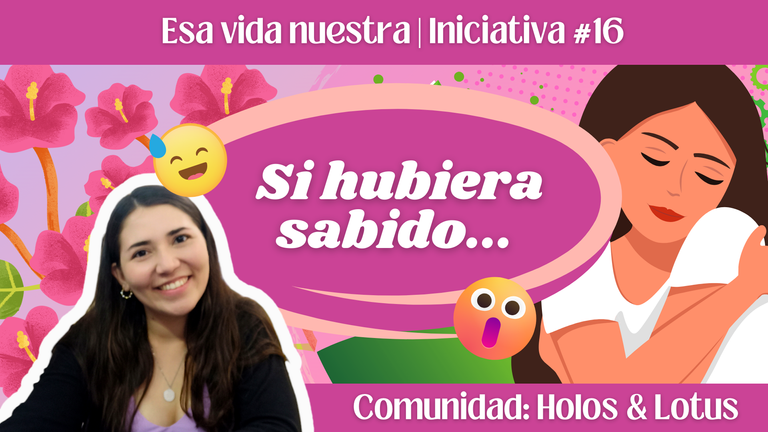
Es bastante frecuente utilizar esa expresión cuando nos enfrentamos a consecuencias desagradables o a eventos que no son tan beneficiosos para nosotros por desconocer alguna información y no poder predecir el futuro. Además, en lo personal también he experimentado el uso de esa expresión cuando a pesar de que en un principio algo no sale como lo esperaba, con el paso de tiempo la vida me termina demostrando que era lo mejor para mí, a pesar de ser algo muy diferente a lo que había planificado o deseado en un primer momento.
En relación al último, recientemente lo viví en mis pasantías de Psicología Clínica, pues inicialmente me correspondía cursarlas en el año 2022 con mis compañeras y amigas de promoción, sin embargo, debido a varios imprevistos que ocurrieron (incluyendo motivos asociados a mi salud) tuve que retirarlas cuando apenas las estaba iniciando, lo que significaba que no iba a poder cursarlas hasta el próximo semestre que comenzaba a principios de este año 2023.
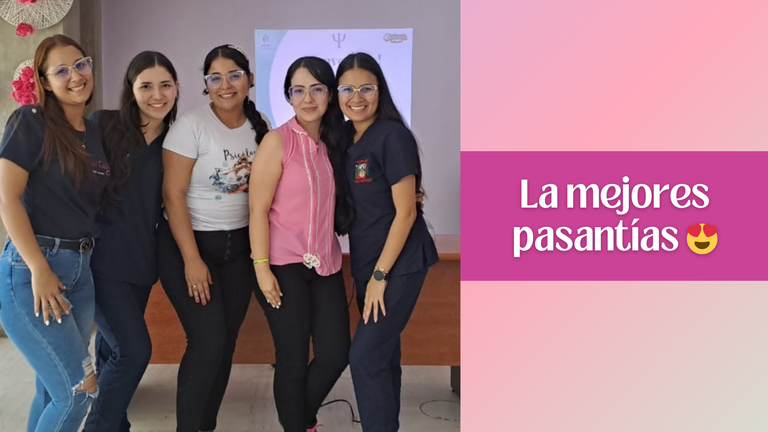
Cuando las retiré me sentí muy triste y lloré porque iba a atrasarme un semestre, a pesar de que en parte sabía que era lo más sano que podía hacer en ese momento, sin embargo, luego de que comencé las pasantías en el 2023 realmente agradecí la experiencia, pues me fue asignada una maravillosa tutora, el sitio de pasantías era mucho más agradable y compatible conmigo que el anterior, aprendí muchísimo, atendí a una gran cantidad de pacientes y tuve una gran compañera de pasantías, con la cual ya había estudiado anteriormente.
Por esa razón durante las pasantías de este año, pensé: "Si hubiera sabido que todo iba a resultar tan fantástico al cursar las pasantías en el 2023, seguramente no habría llorado tanto cuando tuve que retirar las pasantías el año pasado". Pero así es la vida, no podemos saber las sorpresas que nos tiene preparadas en el futuro.
🌷¿Prefiero la incertidumbre y lo impredecible? ¿O preferiría poder tener todo bajo control? 🤔

Siendo sincera, si pudiera definitivamente tendría muchas más cosas bajo control 🙈 pues soy una persona a la que no le gusta improvisar, sino que por el contrario me gusta dedicarme a planificar y organizar las cosas con tiempo para que salgan lo mejor posible, sobretodo cuando se trata de alguna responsabilidad académica o laboral.
Lo mismo hago en procesos de busqueda de trabajo o en actividades o formaciones en los que vaya a participar, pues me gusta investigar, evaluar opciones y proceder a la acción solo cuando me siento bastante segura de que es una buena opción, y así tratar de evitar arrepentimientos en la medida de lo posible, pues eso me hace sentir segura y me ayuda a disminuir la cantidad de situaciones en las que utilizo la frase "si hubiera sabido...".
Sin embargo, por supuesto soy consciente de que es imposible tener absolutamente todo bajo control, y que la vida da muchos giros y sorpresas. Por esa razón, ha sido importante para mi desarrollar la flexibilidad para aceptar cuando a pesar de los esfuerzos las cosas no salen tal y como me habrían gustado, pues mientras más difícil se nos haga aceptar esos momentos, mayor será el nivel de frustración y malestar que sentiremos.
Por lo tanto, lo más sano es aprender a soltar el control en los momentos en que no es posible tenerlo, porque aferrarse a ese deseo de control puede causar aún más dolor, y además aprender a aceptar cuando ocurren imprevistos indeseados en el día a día, para poder reaccionar y adaptarse de mejor manera a ellos, y seguir adelante.
🌷¿He llegado a tomar la decisión de hacer o no hacer algo por temor a lo que pueda pasar?
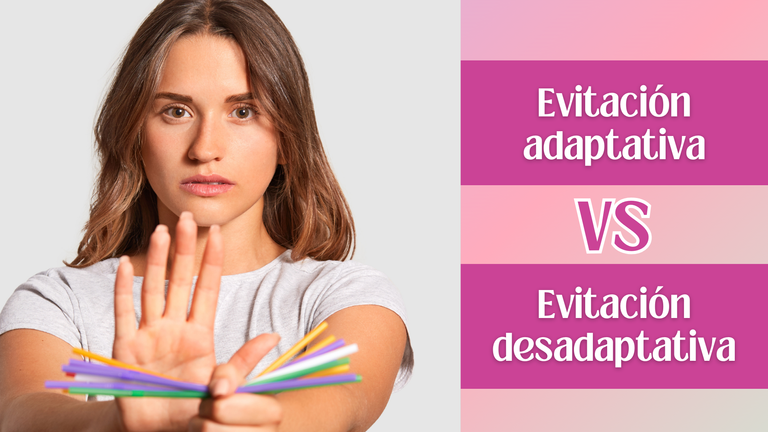
En ocasiones sí, pues nuestra conducta puede verse enormemente influenciada por la manera en la que interpretamos las situaciones pasadas, presentes y futuras. Por ejemplo, al interpretar algún sitio o evento como amenazante y sentir miedo por esa razón, lo más probable es que terminemos huyendo de allí o que evitemos asistir para sentirnos a salvo. Cabe destacar, que para mi, en relación a lo anterior existen dos posibilidades, según lo que aprendí a lo largo de mi carrera universitaria:
- Si es un peligro real que puede poner nuestra vida en riesgo esa reacción es totalmente correcta y adaptativa, porque la función de la emoción del miedo es precisamente evitar que nos lastimemos de gravedad, velando por nuestra integridad. Por ejemplo, si escuchamos disparos, es totalmente adaptativo alejarnos del sitio para buscar un lugar en el que estemos a salvo, y lo mismo pasa con otras emociones como la ira o la tristeza, pues también es adaptativo alejarnos de personas que constantemente nos lastiman con sus conductas, y de esa manera velar por nuestro bienestar.
- Que no exista ninguna evidencia de que nos vaya a pasar algo malo y que sólo nos estemos adelantando a los acontecimientos por ansiedad, tratando de adivinar el futuro para evitar situaciones que puedan afectarnos, resultarnos desagradables o vergonzosas, lo cual no suele ser adaptativo cuando nos lleva a huir de un peligro imaginario que sólo nos limita y aumenta constantemente el número de situaciones en nuestro día a día que queremos evitar. Por ejemplo: No participar nunca en clase por temor a equivocarse y que otras personas se burlen, u otro ejemplo que se me ocurre es que alguien nunca viva la experiencia de viajar en avión por pensar que seguramente se va a caer. En estos ejemplos, es más el daño que nos hacemos a largo plazo evitando constantemente esas y otras situaciones para obtener un alivio temporal, en comparación al daño que experimentaríamos en caso de no huir de ellas, pues seguramente incluso con la práctica notaremos que al no evitarlas obtendremos mayores beneficios para nuestra vida.
En lo personal, en ocasiones si he evitado hacer o decir algo por el temor a la reacción de otras personas, además, en el pasado me costaba muchísimo decir "No" cuando me pedían un favor, y precisamente era para evitar que mis seres queridos se molestaran conmigo, lo cual no era justo para mi, pues estaba anteponiendo constantemente las necesidades de otras personas por encima de las mías, sin embargo, eso ha mejorado mucho a medida que he practicado la comunicación asertiva, explicando amablemente las razones por las que en algunas ocasiones no puedo hacerles un favor.
Luego de comenzar la práctica de decir "No" amablemente si llegue a pensar, "si hubiera sabido antes este tipo de habilidades no me habría complicado la vida por tanto tiempo", pero por supuesto, en esos momentos se debe recordar que nadie nace con conocimientos y habilidades infinitas, constantemente iremos aprendiendo cosas nuevas que nos facilitarán la vida, sin embargo, no por ello debemos frustrarnos ni mucho menos culparnos por no haber sabido algo desde antes. Es importante aprender a ser compasivos con nuestras versiones del pasado que no tenían toda la experiencia y los conocimientos que gozamos actualmente, los cuales por supuesto seguiremos acumulando a los largo de los años.
Experiencias como las anteriores pueden ocurrirle a cualquiera, y por eso es importante hacer el ejercicio personal de prestar atención a nuestras acciones en el día a día y así detectar si repetidas veces hacemos o dejamos de hacer cosas por temor al qué dirán o debido a la manera erronea en que interpretamos las situaciones sin ninguna evidencia, y si es así, es necesario comenzar a practicar el hábito de atrevernos a hacer o a no hacer ciertas cosas aún cuando nuestra mente nos lleve a interpretar esos eventos como amenazantes o insoportables, y de esa forma no dejaremos que esos pensamientos nos limiten, nos daremos cuenta de que muchas veces no son interpretaciones realistas, y podremos ir superando poco a poco esas evitaciones constantes que obstaculizan nuestro desarrollo, superación personal, libertad de acción y bienestar.
Por supuesto, no es algo fácil que se pueda dominar de la noche a la mañana, pero con la práctica se va mejorando cada día más y más. Cabe destacar, que en caso de que sea muy complicado de realizar y se esté experimentando mucho malestar y deterioro asociado en diversas áreas de la vida, se debe tomar la decisión responsable de asistir a consulta psicológica.
Eso sería todo por hoy, espero que hayan disfrutado de mis reflexiones en torno al tema. Muchas gracias a @charjaim por la invitación, y me alegra haber podido terminar la publicación a tiempo para participar en tu iniciativa, en verdad me inspiró y me llevó a reflexionar muchísimo.
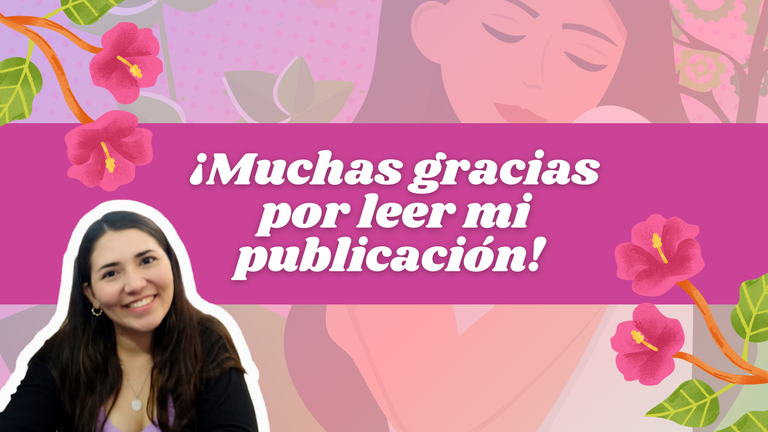
Referencias:
✨ English Version ✨
🙋🏻♀️Hello friends of Hive and the beautiful @holos-lotus community!🥰
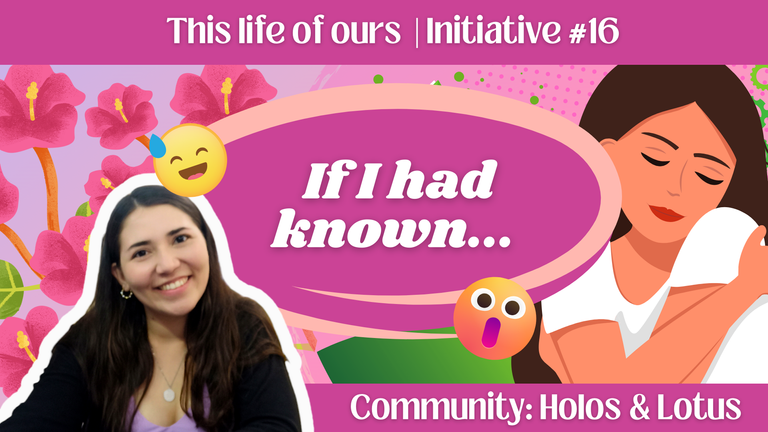
It is quite common to use that expression when we face unpleasant consequences or events that are not so beneficial for us because we do not know some information and cannot predict the future. In addition, personally I have also experienced the use of this expression when, in spite of the fact that at the beginning something does not work out as I expected, with the passage of time life ends up showing me that it was the best thing for me, even though it was something very different from what I had planned or desired at first.
In relation to the last possibility I mentioned in the previous paragraph, I recently experienced it in my Clinical Psychology internships, since initially I was supposed to take them in 2022 with my classmates and friends, however, due to several unforeseen events that occurred (including reasons associated with my health) I had to withdraw them when I was just starting them, which meant that I would not be able to take them until the next semester starting at the beginning of this year 2023.
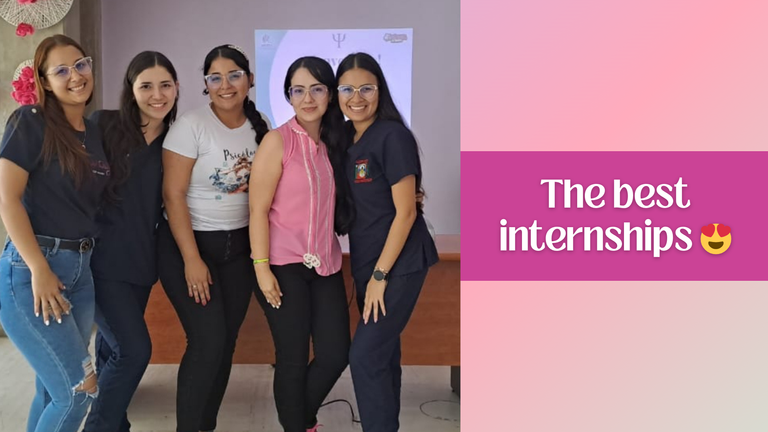
When I withdrew my internships I felt very sad and cried because I was going to be a semester behind, even though I partly knew it was the healthiest thing I could do at that time, however, after I started the internship in 2023 I really appreciated the experience, because I was assigned a wonderful tutor, the internship site was much nicer and more compatible with me than the previous one, I learned a lot, I saw a lot of patients and I had a great internship partner, with whom I had studied with before.
For that reason during this year's internship, I thought to myself, "If I had known that everything was going to turn out so fantastic taking the internship in 2023, I surely would not have cried so much when I had to withdraw from the internship last year." But that's the way life is, we can't know what surprises it has for us in the future.
🌷Do I prefer uncertainty and unpredictability? Or would I prefer to be able to have everything under control? 🤔
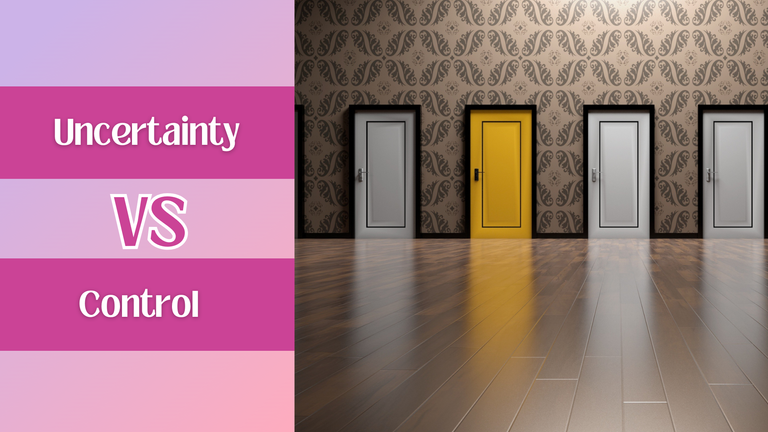
Being honest, if I could I would definitely have many more things under control 🙈 because I am a person who does not like to improvise, but on the contrary I like to dedicate myself to plan and organize things with time so that they go as well as possible, especially when it comes to some academic or work responsibility.
I do the same in job search processes or in activities or trainings in which I am going to participate, because I like to investigate, evaluate options and proceed to action only when I feel quite sure that it is a good option, and thus try to avoid regrets as far as possible, because that makes me feel safe and helps me to reduce the number of situations in which I use the phrase "if I had known ...".
However, I am of course aware that it is impossible to have absolutely everything under control, and that life takes many twists and turns and surprises. For that reason, it has been important for me to develop the flexibility to accept when, despite my best efforts, things do not turn out as I would have liked them to, because the more difficult it is to accept those moments, the greater level of frustration and discomfort we will feel.
Therefore, the healthiest thing to do is to learn to let go of control in the moments when it is not possible to have it, because clinging to that desire for control can cause even more pain, and also learn to accept when unwanted unforeseen events occur in the day to day, to be able to react and adapt in a better way to them, and move forward.
🌷Have I made a decision to do or not to do something out of fear of what might happen?
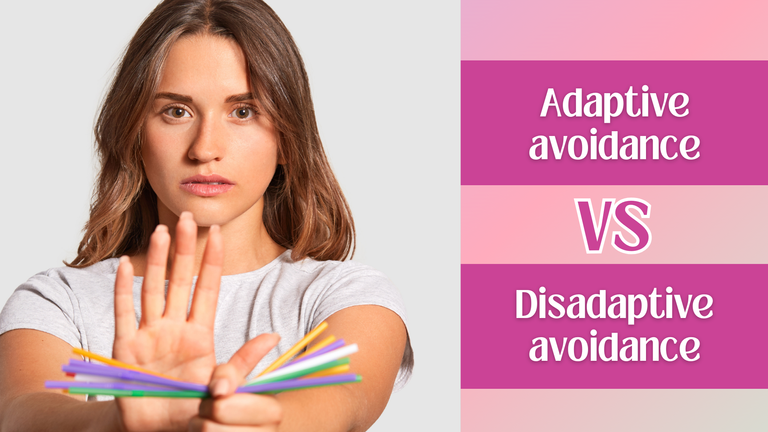
Sometimes yes, because our behavior can be greatly influenced by the way we interpret past, present, and future situations. For example, when we interpret some place or event as threatening and feel fear for that reason, we will most likely end up running away from there or avoid attending in order to feel safe. It should be noted that for me, in relation to the above, there are two possibilities, according to what I learned throughout my university career:
- If it is a real danger that can put our life at risk, this reaction is totally correct and adaptive, because the function of the emotion of fear is precisely to prevent us from getting seriously hurt, watching over our integrity. For example, if we hear gunshots, it is totally adaptive to move away from the site to look for a place where we are safe, and the same happens with other emotions such as anger or sadness, because it is also adaptive to move away from people who constantly hurt us with their behavior, and thus ensure our wellbeing.
- That there is no evidence that something bad is going to happen to us and that we are only anticipating events out of anxiety, trying to guess the future to avoid situations that may affect us, be unpleasant or embarrassing, which is not usually adaptive when it leads us to flee from an imaginary danger that only limits us and constantly increases the number of situations in our daily lives that we want to avoid. For example: Never participating in class for fear of making a mistake and other people making fun of us, or another example that comes to mind is that someone never lives the experience of traveling by plane because he/she thinks that it will surely fall. In these examples, it is more the damage we do to ourselves in the long run by constantly avoiding these and other situations to obtain temporary relief, compared to the damage we would experience in case of not running away from them, because surely even with practice we will notice that by not avoiding them we will obtain greater benefits for our life.
Personally, sometimes I have avoided doing or saying something for fear of other people's reaction, also, in the past it was very difficult for me to say "No" when I was asked for a favor, and precisely to avoid my loved ones to be upset with me, which was not fair to me, because I was constantly putting the needs of others above my own, however, that has improved a lot as I have practiced assertive communication, kindly explaining the reasons why sometimes I can not do them a favor.
After starting the practice of saying "No" kindly I did come to think, "if I had known this type of skills before I would not have complicated my life for so long", but of course, in those moments we must remember that no one is born with infinite knowledge and skills, we will constantly learn new things that will make our lives easier, however, we should not get frustrated or much less blame ourselves for not having known something before. It is important to learn to be compassionate with our versions of the past that did not have all the experience and knowledge we enjoy today, which of course we will continue to accumulate over the years.
Experiences like the above can happen to anyone, and that is why it is important to make the personal exercise of paying attention to our actions on a daily basis and thus detect if we repeatedly do or fail to do things for fear of what people will say or because of the wrong way in which we interpret situations without any evidence, and if so, it is necessary to start practicing the habit of paying attention to our actions, it is necessary to start practicing the habit of daring to do or not to do certain things even when our mind leads us to interpret those events as threatening or unbearable, and in this way we will not let those thoughts limit us, we will realize that many times they are not realistic interpretations, and we can gradually overcome those constant avoidances that hinder our development, self-improvement, freedom of action and welfare.
Of course, it is not something easy that can be mastered overnight, but with practice we improve more and more every day. It should be noted that in case it is very complicated to perform and you are experiencing a lot of discomfort and associated deterioration in various areas of your life, you should take the responsible decision to attend psychological consultation.
That would be all for today, I hope you enjoyed my reflections on the topic. Many thanks to @charjaim for the invitation, and I'm glad I was able to finish the post in time to participate in your initiative, it really inspired me and led me to reflect a lot.
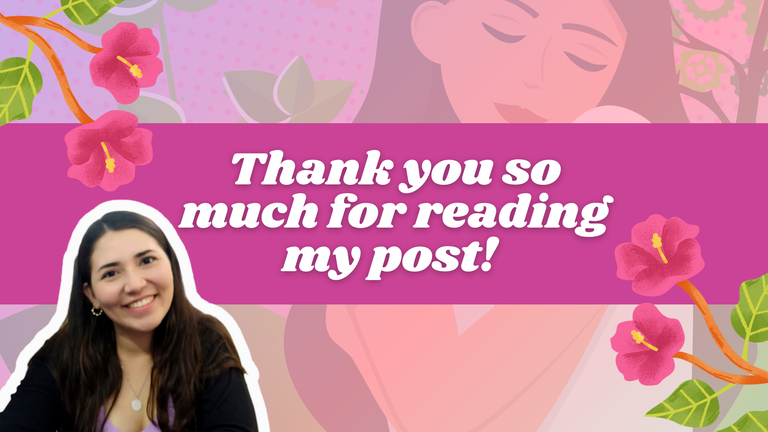
References:
I hope everyone is having a happy start of the week 🤗 Today I am pleased to participate in the initiative proposed by @charjaim, in which she leads us to reflect on an expression that many of us have used at least once after unexpected situations that end up surprising us due to how unpredictable life can be: "If I had known...".
Las cosas siempre pasan por algo, en principio nos cuesta verlo, luego lo entendemos y agradecemos. Decir "No" es algo que nos cuesta a muchos, al igual que tú, yo también pasé por eso, pero he ido aprendiendo y a hacerlo de manera que no incomode a los demás. Saludos.
Así es, realmente a veces lo mejor es lo que pasa, así inicialmente nos cueste darnos cuenta de eso, pero con el tiempo es que logramos notarlo y tal como dices, terminamos entendiendo todo y agradeciendo. Me alegra que también hayas aprendido a decir que "No". Gracias por tu apoyo y comentario 🤗
Me contenta que te haya llevado a hacer estas reflexiones muy valederas y profundas en aspectos de la vida que son cruciales. Gracias por contarnos.
Saludos cordiales.
Gracias por la iniciativa 💜 Muchos saludos 🤗
Congratulations @mariiestefania! You have completed the following achievement on the Hive blockchain And have been rewarded with New badge(s)
Your next target is to reach 3000 upvotes.
You can view your badges on your board and compare yourself to others in the Ranking
If you no longer want to receive notifications, reply to this comment with the word
STOPCheck out our last posts: